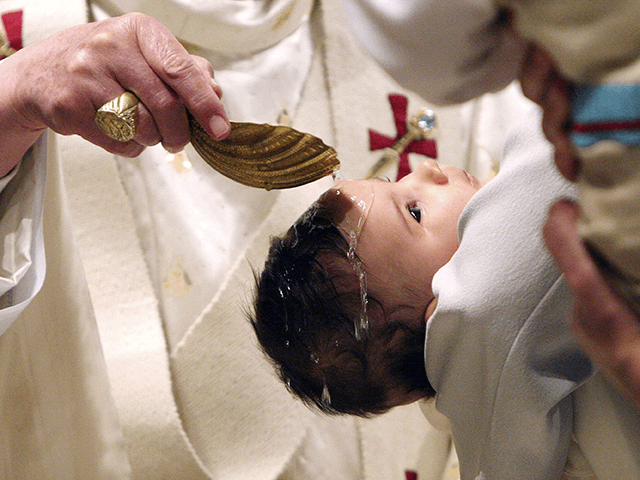The Catholic Archdiocese of Milwaukee has issued an instruction this week banning the use of “preferred pronouns” that do not correspond to a person’s biological sex.
“Permitting the designation of a preferred pronoun, while often intended as an act of charity, instead promotes an acceptance of the separability of biological sex and ‘gender’ and thus opposes the truth of our sexual unity,” state the new guidelines, titled “Catechesis and Policy on Questions Concerning Gender Theory.”
“As a general rule, in all interactions and policies, parishes, organizations, and institutions are to recognize only a person’s biological sex,” the guidelines read, and any parochial, organizational, or institutional documentation requiring the designation of a person’s sex “is to reflect that person’s biological sex.”
The instruction also mandates that all persons “must use the bathroom or locker room which matches their biological sex” and where a dress code or uniform is required, “all persons are to follow the dress code or uniform that accords with their biological sex.”
The text asserts that a person’s gender “is inseparable from biological sex,” adding that while biological sex and gender can be distinguished, “they can never be separated.”
“Respect for creation is also a respect for one’s biological sex,” the document states, noting the “acceptance of our bodies as God’s gift is vital for welcoming and accepting the entire world as a gift from the Father and our common home.”
The glossary of terms provided at the end of the document defines gender ideology/theory as an ideology or theory “that denies the difference and reciprocity in nature of a man and a woman, and envisages a society without sexual differences, thereby eliminating the anthropological basis of the family.”
Gender Theory promotes “a personal identity and emotional intimacy radically separated from the biological difference between male and female,” it declares.
Francis DeBernardo, Executive Director of the LGBT advocacy group New Ways Ministry, unsurprisingly rejected the new guidelines as “anti-transgender,” contending they are “not only pastorally ineffective but also personally damaging.”
Refusing to address an individual by their preferred pronouns, even when they clash with their biological sex, is a form of “disrespect and bullying,” DeBernardo said.

COMMENTS
Please let us know if you're having issues with commenting.